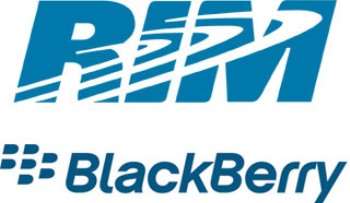RIM Considers Cloud Services And Office 365 Access

RIM is expanding its cloud services and porting Microsoft Office 365 cloud to PlayBook and BlackBerry
Research In Motion is planning to partner with Microsoft on the latter’s cloud offerings, which will be integrated into BlackBerry devices as well as the upcoming Playbook tablet.
“Cloud has always been core to our business,” Alec Taylor, vice president of Software, Services and Enterprise Marketing for RIM, told analysts and reporters. “It’s how we do real-time push; it’s how we developed our world-class security, our integration with carrier systems.”
Three-pronged Attack
 To increase its reach into the cloud, though, RIM is apparently planning a troika of services to roll out later in 2011. These include BlackBerry Protect, a cloud-based solution to secure and protect smartphones and their content, BlackBerry Management Centre, a cloud-based management system aimed at small and midsize businesses, and Blackberry Enterprise Service for larger companies seeking to move into the cloud.
To increase its reach into the cloud, though, RIM is apparently planning a troika of services to roll out later in 2011. These include BlackBerry Protect, a cloud-based solution to secure and protect smartphones and their content, BlackBerry Management Centre, a cloud-based management system aimed at small and midsize businesses, and Blackberry Enterprise Service for larger companies seeking to move into the cloud.
RIM executives argue that businesses can accrue substantial savings by porting their data centre needs to an off-site host.
Enterprises “are driving more toward a consumption model for their technology”, Taylor said. In that spirit, BlackBerry Enterprise Service “is all about taking advantage of the opportunity to manage BlackBerries from the cloud”. Services available will apparently be similar to those already present in BlackBerry Enterprise Server Express.
The agreement with Microsoft centres on RIM providing cloud-based BlackBerry service in support of Office 365, whose subscription-based model allows organisations to stay up-to-date with the latest versions of Microsoft Office, SharePoint Online, Exchange Online and Lync Online. RIM’s BlackBerry Enterprise Servers will apparently connect “cloud to cloud” with Microsoft’s data centres to host Office 365 data on users’ BlackBerries.
RIM’s upcoming PlayBook tablet will be able to port and display Office 365 data from any user’s BlackBerry, via a tethering service called BlackBerry Bridge. RIM executives remain tight-lipped about the PlayBook’s general release date, although some online sources suspect it will be sometime in April.
In theory, BlackBerry Bridge helps users keep corporate data secure. Removing one’s BlackBerry from tethering range will “disappear” the PlayBook applications related to messaging and other security-sensitive features. Users can also set expiration dates for the PlayBook’s cached data, and enforce more stringent password policies. Tethering allows BlackBerry’s encryption key to reside solely on the smartphone.
The PlayBook relies on a proprietary operating system based on software acquired during RIM’s takeover of QNX Software Systems from Harman International in April 2010. It emphasises multitasking, with the ability to swipe your finger along the sides of the screen to cycle through applications; “flicking” one of the applications’ thumbnail images will close it down. During a handful of meetings with eWEEK throughout January, RIM executives suggested they were still tweaking the tablet’s software for better battery life, while insisting that the device would eventually provide “a full day’s work” on a single charge.